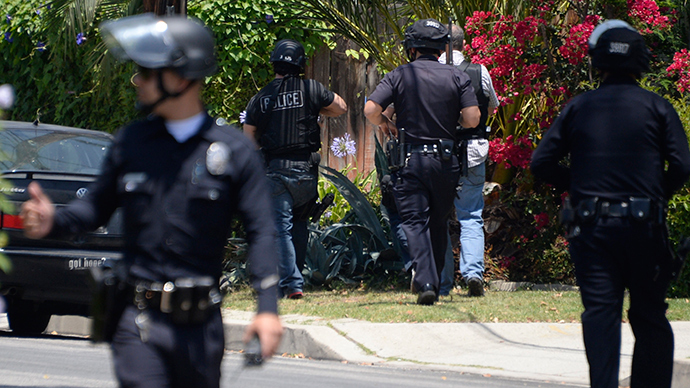‘Homeland Security is an inefficient, bureaucratic quagmire’

Many employees are leaving the American DHS because of severe bureaucracy in the agency, which stands accused of gross inefficiency. The latest scandalous incident with the White House intruder is another proof of that, analyst Ivan Eland told RT.
Over the past four years there has been a huge exodus of top-level officials from the Department of Homeland Security (DHS), according toThe Washington Post. The reason of mass departures is a dysfunctional work environment, abysmal morale and attractiveness of the salaries in the private security sector.
This situation undermines the agency’s ability to stay ahead of a range of emerging threats such as terrorist strikes and cyber-attacks. Employees describe governmental agencies as places where stifling bureaucracy totally clashes with employee cultures. The outflow of both senior and junior staff members also “had a tremendous effect” on the efficiency of work of the Transportation Security Administration, a DHS agency created after 9/11 to enhance airport security, said Kenneth Kasprisin, a former acting TSA head.
RT discussed the issue with Ivan Eland, who is Senior Fellow and Director of the Center on Peace and Liberty at The Independent Institute.
RT:Homeland Security Secretary Jeh Johnson said the department faces “a leadership vacuum of alarming proportions.” Is the problem really that big? Why are people leaving?
Ivan Eland: I think it is. A lot of people are leaving the department because of the lucrative jobs in the private security area and morale is very low because the bureaucracy at the DHS is very severe. There were originally 22 agencies glued together and put on another layer of bureaucracy over the super structure there to supervise all the agencies. So there are a lot of different agencies and it is a real bureaucratic morass and very inefficient. I think people are [facing] hard work there and they are going to the private sector in the security area.
RT:How will in your opinion the government act and what actually should be done to improve the situation?
IE: What we are going to see is that they are going to say, they are setting the taxpayer up to say: “We need to increase the salaries so we can hold some of these people.” But I think a lot of times the people are leaving out of frustration because of the bureaucratic quagmire there. I think really what they need to do is downsize the whole operation and actually cut the budget rather than increase it because they certainly have a lot of duplication and they have all these agencies. The place is supposed to be designed to secure the nation and the principal enemy is nimble terrorist groups. And this reorganization after 9/11 simply made more bureaucracy and the whole thing is a huge agency which doesn't work very well. I think they should probably admit they made a mistake and redo some of this bureaucracy, and redo some of the agencies that are in this thing and restructure the whole mess.
RT:Statistics show that the outflow of personnel has accelerated during the Obama years – why is that?
IE: There is probably just more frustration. It has been a bureaucratic mess for a long time, ever since it was created. And I think it is just wearing on people and also this private market has grown up to be very lucrative for people in the private security areas because companies are concerned about their cyber security or other types of security. This is where it is taking people. I think it has been exacerbated under Obama for those reasons.
RT:Which security issues are under threat because of these departures?
IE: When you are switching leadership all the time, the culture of the agency changes each time that happens so the terrorism operation is affected as are all the other areas of DHS who have also seen their leaders change out or have had an absence of leaders who weren’t there.
RT:Are the current security services really effective?
IE: Of course there is always security at the airport, the Transportation Security Administration, and that is not the only one. There are the Coast Guard and the Secret Service. All these security agencies are affected by this. And we just saw the White House security – an intruder jumped over the fence and got clear inside the White House, because they left the door unlocked. These types of things that drive you crazy and we have all this bureaucratic security, but is it really a security if a guy can just open the door and go in? So we have to have some common sense and the bureaucratic mentality at the agency level has got down to the local security [level], such as the White House or airport security. We have a lot of airport security measures that people are very frustrated with... Yet they don’t provide much security and they should probably be removed and go. Let`s stick with the common sense core that we need to have in security and do nothing more. Because all the other security just diverts our attention from the most important things. I think that as a whole this White House intruder incident indicates a microcosm of the wider problem of having all these procedures, all these agencies, and a lot of inefficiency.
The statements, views and opinions expressed in this column are solely those of the author and do not necessarily represent those of RT.
The statements, views and opinions expressed in this column are solely those of the author and do not necessarily represent those of RT.












